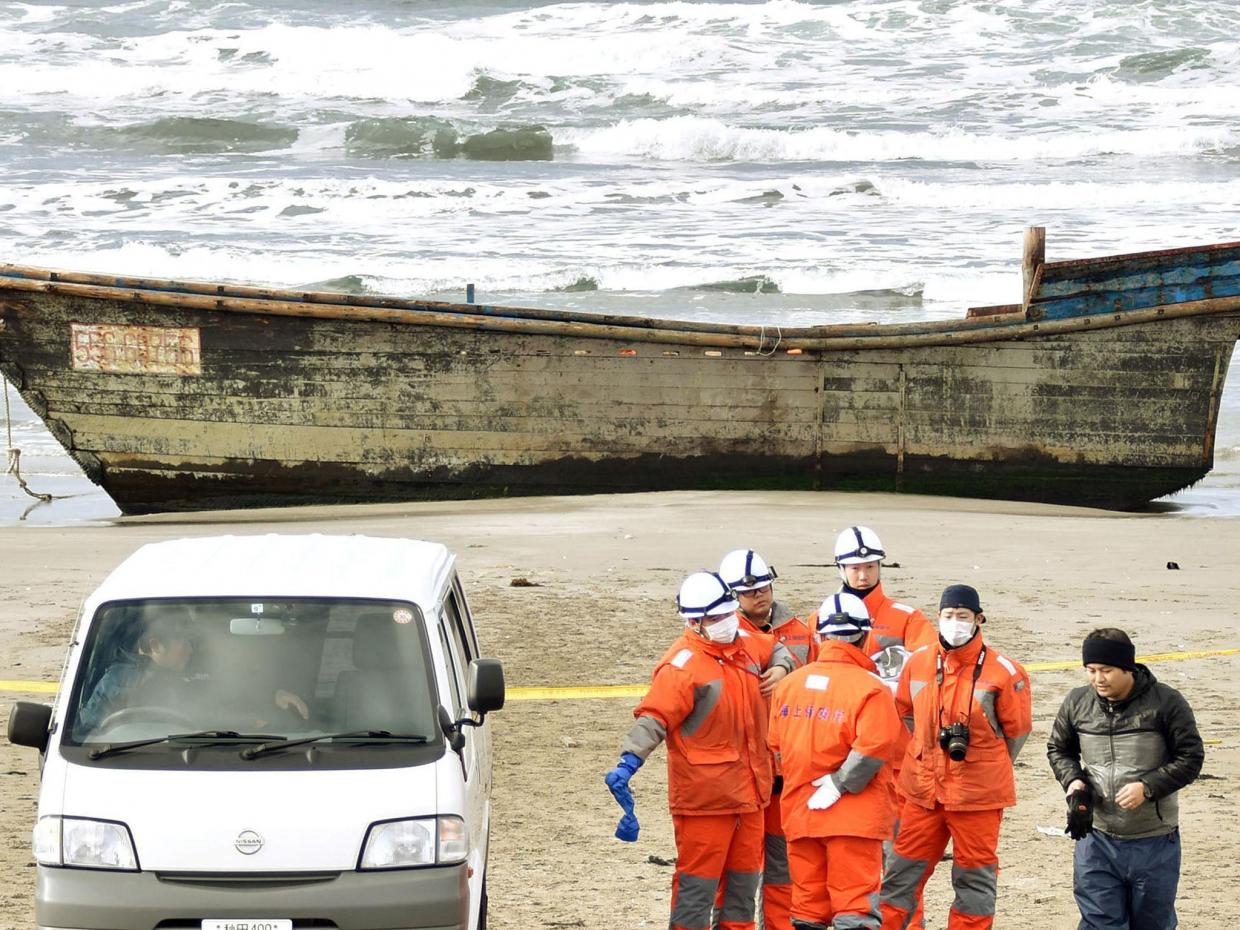by PATRICK COCKBURN
 North Korean ghost ships are washing up on the shores of Japan, sometimes with their starving sailors still on board PHOTO/Reuters
North Korean ghost ships are washing up on the shores of Japan, sometimes with their starving sailors still on board PHOTO/Reuters
Saddam Hussein and his senior lieutenants were rightly executed for their crimes, but the foreign politicians and officials who were responsible for the sanctions regime that killed so many deserved to stand beside them in the dock
The first pathetic pieces of wreckage from North Korean fishing boats known as “ghost ships” to be found this year are washing up on the coast of northern Japan. These are the storm-battered remains of fragile wooden boats with unreliable engines in which North Korean fishermen go far out to sea in the middle of winter in a desperate search for fish.
Often all that survives is the shattered wooden hull of the boat cast up on the shore, but in some cases the Japanese find the bodies of fishermen who died of hunger and thirst as they drifted across the Sea of Japan. Occasionally, a few famished survivors are alive and explain that their engine failed or they ran out of fuel or they were victims of some other fatal mishap.
The number of “ghost ships” is rising with no fewer than 104 found in 2017, which is more than in any previous year, though the real figure must be higher because many boats will have sunk without trace in the 600 miles of rough sea between North Korea and Japan.
The reason so many fishermen risk and lose their lives is hunger in North Korea where fish is the cheapest form of protein. The government imposes quotas for fishermen that force them to go far out to sea. Part of their catch is then sold on to China for cash, making fish one of the biggest of North Korea’s few export items.
The fact that North Korean fishermen took greater risks and died in greater numbers last year is evidence that international sanctions imposed on North Korea are, in a certain sense, a success: the country is clearly under severe economic pressure. But, as with sanctions elsewhere in the world past and present, the pressure is not on the North Korean leader Kim Jong-un, who looks particularly plump and well-fed, but on the poor and the powerless.
The record of economic sanctions in forcing political change is dismal, but as a way of reducing a country to poverty and misery it is difficult to beat. UN sanctions were imposed against Iraq from 1990 until 2003. Supposedly, it was directed against Saddam Hussein and his regime, though it did nothing to dislodge or weaken them: on the contrary, the Baathist political elite took advantage of the scarcity of various items to enrich themselves by becoming the sole suppliers. Saddam’s odious elder son Uday made vast profits by controlling the import of cigarettes into Iraq.
Independent for more
